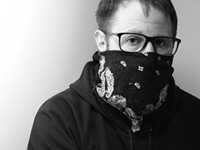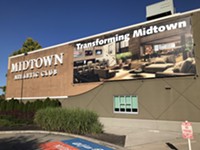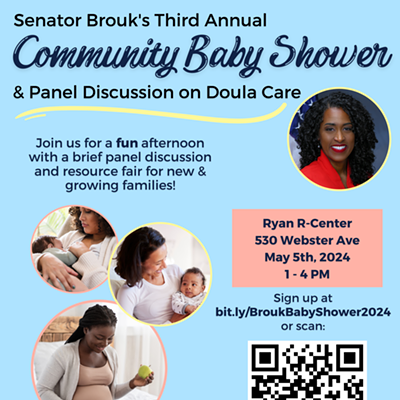[
{
"name": "500x250 Ad",
"insertPoint": "5",
"component": "15667920",
"parentWrapperClass": "",
"requiredCountToDisplay": "1"
}
]
The headline is a phrase I've borrowed from journalist Pete Hamill. On a recent Lehrer NewsHour, Hamill used it in referring to last September's attack on New York City. And it's the most apt description I've seen.
I have sought, over the past few weeks, some insight into the subject of emotional pain: not the kind that oppresses people with mental illness, but the pain that those of us a step removed from the World Trade Center, the Pentagon, Shanksville, Pennsylvania, have experienced since September 11, 2001.
At this distance, on the eve of the one-year anniversary of that terrible day, there has been the luxury of analysis, of putting things into context. And so the people I have talked to have turned the subject immediately to, well, politics, of one form or another.
And politics, surely, is important. There are many lessons to be learned from September 11, and one of them is that we must understand why some people hate this country. We must come to grips with the outrageous discrepancy between what we say this nation stands for, and what, as a nation, we do in the world.
And yet, there is a need to grieve. A year is not nearly enough time to mourn the losses of September 11. It is not enough time, certainly, for those who directly suffered those losses. Nor is it enough time for those of us one step removed from Manhattan, Arlington, and Shanksville.
I had thought that we who live in New York State might feel more connected to the tragedies than people in some other parts of the country. But my sister, a long-time resident of Atlanta, read every single word of every single one of those wrenching portraits of the victims in the New York Times. For months. And she continued to weep.
This week many of us are reading the media tributes, and watching the television programs. We still need to face the pain, as we did this week a year ago when we watched, over and over, the videotapes of the planes flying into the buildings, the people leaping to their deaths, the firefighters climbing the stairs, the towers collapsing.
We have watched, New York Times columnist Verlyn Klinkenborg wrote last year, "because it feels as if we're attesting to history, denouncing a crime, renewing a commitment, and also because to break off watching feels like a betrayal."
The September 11 attacks generated a wave of national unity --- and not just a united hostility toward the attackers. There was an outpouring of concern for others. Rescue workers and donations poured into Manhattan, far, far more than could be used.
We know now that the instinctive response by New York City firefighters and police officers, with too little coordination, contributed to the devastating loss of life among those brave public servants.
On the NewsHour interview, Pete Hamill told of ironworkers who just showed up at Ground Zero with their tools the night of September 11. "They had not been called by any politician," said Hamill. "They hadn't been called by union leaders. There was no plan certainly to say 'and then the ironworkers' --- they just showed up, and they said, 'We cut steel. You're going to need us.' And they went to work that night in the middle of a kind of 19th-century darkness.'"
In the aftermath of September 11, says a pastor friend of mine, the nation missed a great opportunity. President Bush could have used Americans' spirit of unity and concern to lead us in addressing poverty and other critical national needs. Instead, the president is intent on unifying us to attack Saddam Hussein.
Maybe the fact that we still embrace the pain offers hope. Look at the memorial services being held in this community on this one day: exhibits, worship services, a candlelight vigil, acts of community service, participation in a worldwide performance of Mozart's Requiem. These are tributes as unique and wrenching as the candles and flowers and chalked inscriptions placed in countless locations in Manhattan in the days following 9/11.
They are not war-mongering observances. They are events focused on the pain of the victims, and on the pain of those of us one step removed from the attacks. They are a testament that despite our short national attention span, we're still paying attention to the wound.
"I think we're a better place already," said Hamill, discussing the changes in New York City and in New Yorkers, "because of this great wound."
So, perhaps, is the nation. But, Hamill added, "how we react to the wound is the thing ...that we're going to be measured by 10 or 15 or 50 years from now."
Speaking of September 11
-
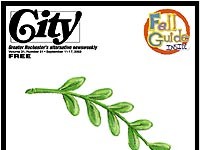
Peace's progress: one year later
Sep 11, 2002 - More »
Latest in Columns
More by Mary Anna Towler
-

Police reform: advocates on what should come next
Oct 22, 2019 -

Court clears the way for Police Accountability referendum
Oct 17, 2019 -
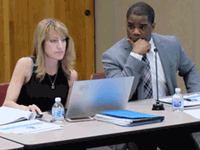
Dade outlines initial actions on district deficit
Oct 9, 2019 - More »

